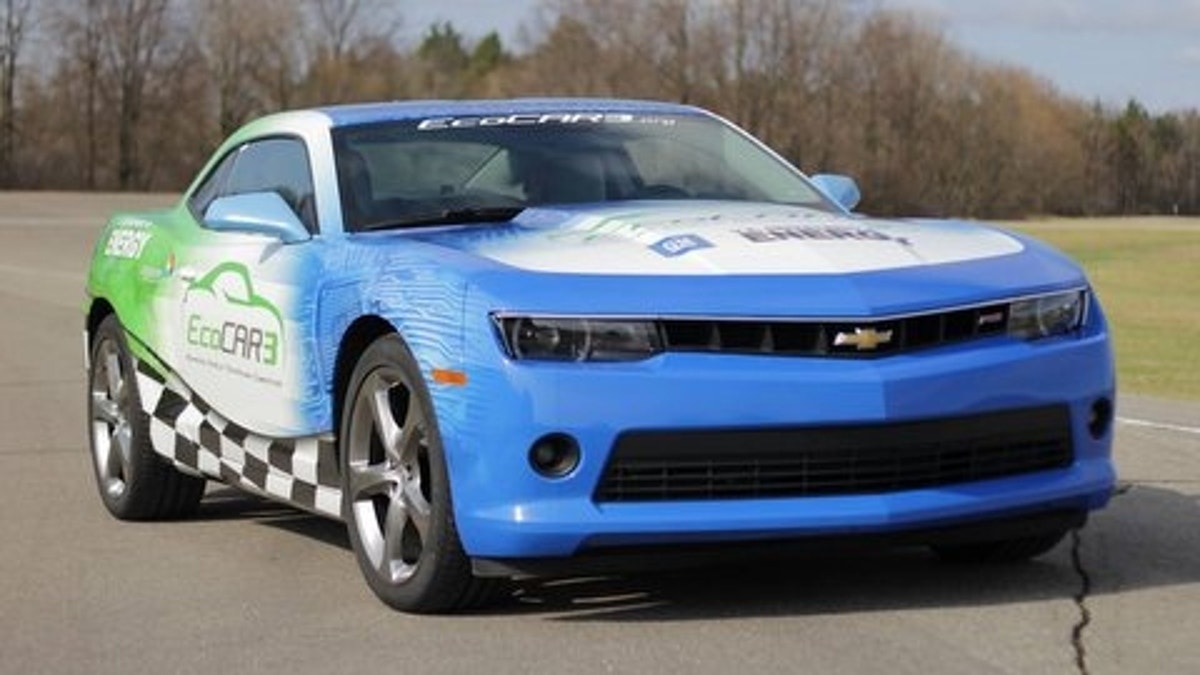
(EcoCar3)
Efficiency and environmentalism are deeply interwoven into the future of automotive development. These days, you can’t say that gas mileage and emissions only matter for hybrids and small cars; everything has to get more efficient. With that in mind, the announcement of the EcoCar 3 competition is particularly exciting because the challenge is to create a hyper-efficient Camaro.
The EcoCar challenge is a collaboration between GM, the Department of Energy, and colleges and universities across the U.S. The goal is for students at each participating school to develop a more efficient version of a car. And, according to the Detroit News, those students will spend the next three years working on developing a more efficient Camaro.
Given that the most efficient version of the Camaro equipped with a V6 gets just 22 mpg, there is a lot of room for improvement. That is one of the reasons that this was such a good choice; students won’t be working on eking out a bit more from an already efficient car. Instead, they’ll be working to transform a performance car’s efficiency without killing its sporting character.
This challenge also is just plain sexier than previous attempts. EcoCar 2 worked on Chevy Malibus, and while that may not be a bad car, it’s hard to work up much excitement for a vehicle that will spend a lot of its life in rental fleets. Part of any such program is bringing good PR to the work being done, and that is also made easier when you have a car that looks and drives like the Camaro.
More From Digital Trends
To achieve these ends, students will try everything from replacing the powertrain with alternative fuels or hybrid systems to reducing weight and improving aerodynamics. The research and development process will emulate the same process used by GM and other big automakers, giving the students a chance not just to work on the car but also get some experience relevant to the automotive industry.
The best part, though, is bringing some of the worst efficiency offenders up to merely respectable levels, say 27 to 30 mpg, would have a dramatic impact on the entire industry’s average. This means that we can still enjoy the odd sportscar or full-size truck with eye-wateringly bad mileage, with a little less crippling guilt.